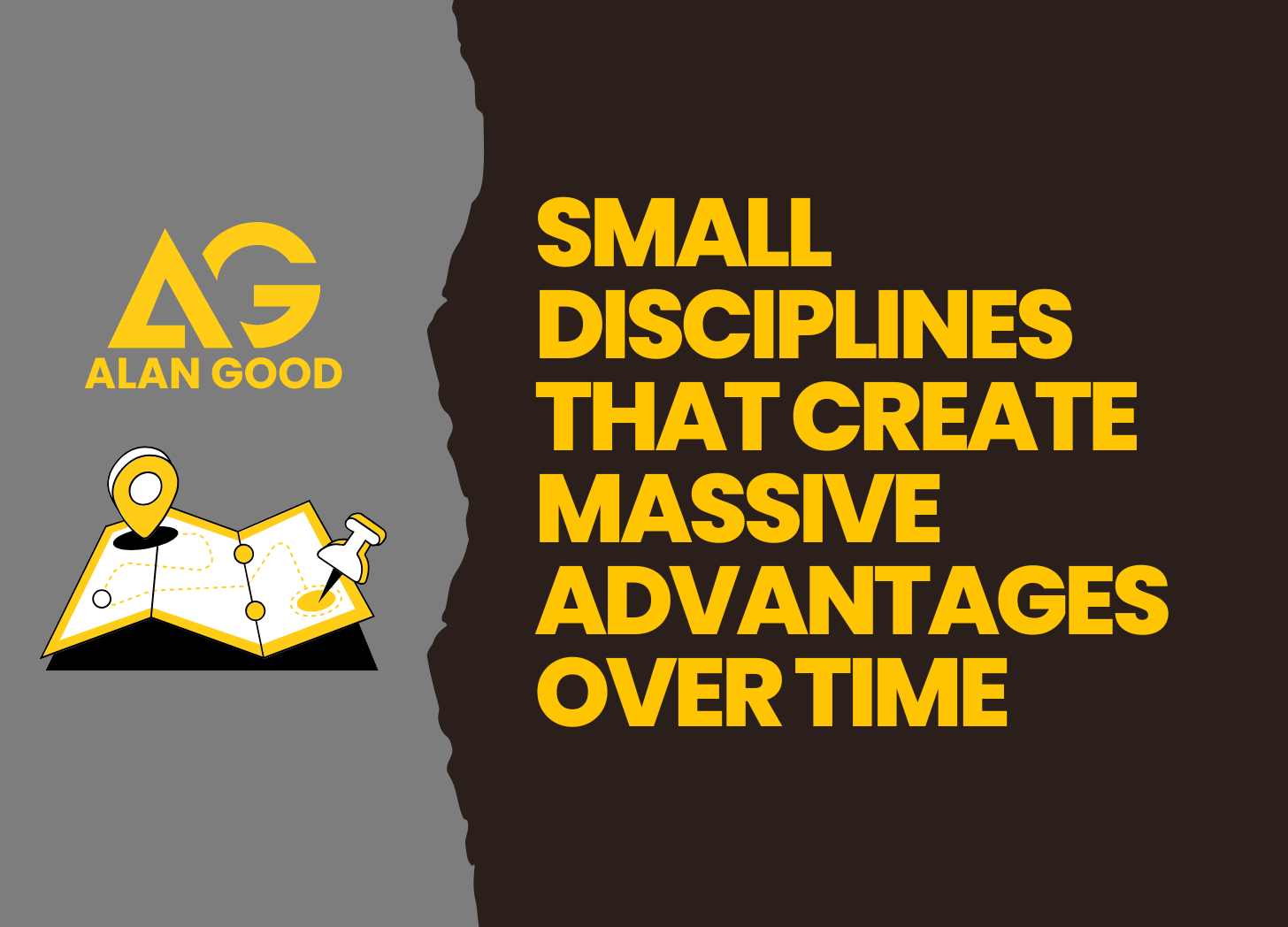Talent gets you noticed. Habits get you recruited.
The compound effect most families miss in athletic development
The best recruits aren’t always the most talented players on the field.
They’re the ones who’ve built habits that compound over time - small disciplines that create massive advantages by the time recruiting gets serious.
The pattern I see every season
Every fall, talented freshmen arrive on campus who dominated their high school competition.
By winter, a clear divide emerges. Some adapt quickly to college demands. Others struggle.
The difference isn’t talent. It’s habits.
The athletes who thrive are the ones who spent years building systems that don’t depend on external goals, perfect conditions, or someone else pushing them.
The ones who struggle? They relied on talent and “showing up on gameday” to get them through high school. When that pressure disappears and the talent gap narrows in college, they have no foundation to fall back on.
The recruiting reality
Most families don’t understand the jump from club to college. Your talent gets you noticed, but your habits determine whether you succeed.
I can teach you tactical systems. I can improve your fitness. I can develop your technical skills.
But I can’t teach you how to show up consistently when no one’s watching. That habit has to be built long before you arrive on campus.
When I’m evaluating recruits, I’m not just watching what they do on the field. I’m looking for evidence of the habits that will translate to college success.
Do they arrive early to the facility, or rush in at the last second? How do they respond after making a mistake? Are they the first or last to leave after practice ends? Do they compete hard in drills that don’t matter for the scoreboard?
These behaviors reveal whether an athlete has built the habits that sustain performance over four years of college competition.
The compound effect
Extra touches after practice don’t seem like much. Twenty minutes, twice a week?
Over a year, that’s 80+ sessions. Over two years before recruiting heats up, that’s 160+ sessions of skill work your competition skipped.
Watching 15 minutes of film each week doesn’t feel significant. Over a season, that’s hours of tactical learning that compounds your understanding of the game.
Doing recovery work consistently doesn’t show up in highlight reels. Over months, it keeps you healthy and on the field while others are injured.
Small habits compound. This is the advantage coaches see in the best recruits - not just natural talent, but accumulated repetition.
The motivation trap
Most athletes rely on the wrong kind of motivation to drive their development.
They work hard when a coach is watching. When a showcase is coming up. When their parents are pushing them. When they’re competing for a starting spot.
This is extrinsic motivation - doing the work because of external pressure or rewards.
It works temporarily. It disappears the moment the pressure lifts or the reward feels too far away.
The athletes who build lasting habits have something different: intrinsic motivation. They do the work because they genuinely want to improve, because they love the process of getting better, because competing against yesterday’s version of themselves drives them.
They don’t decide each day whether to do extra touches based on how motivated they feel. They just do them, the same way they brush their teeth - because it’s part of their routine.
But even with the right systems, maintaining habits over years requires one crucial skill.
One rule that changes everything
Our coaching staff read James Clear’s Atomic Habits together a few years ago. While it’s a productivity book, the framework applies perfectly to athletic development.
One concept stood out immediately: the “never miss twice” rule.
One mistake is just an outlier. Two mistakes is the beginning of a new habit.
You missed your extra touches after practice today? That’s fine. Life happens. You were exhausted, or had a legitimate conflict, or just forgot.
Tomorrow, you get back to it. No excuses, no waiting for Monday to “restart.”
The difference between good players and great players often comes down to who gets back on track faster after slipping up once.
During long seasons with tournaments, school stress, and social obligations, it’s easy to let good habits slide. The athletes who maintain their development habits through disruption are the ones who show up at recruiting events with skills that separate them from the pack.
Missing once doesn’t derail your progress. Missing twice starts a pattern that does.
The bottom line
The gap between talented club players and college recruits isn’t always talent. It’s habits built over the years that create compounding advantages.
Small disciplines executed consistently beat motivation-driven bursts of effort every time.
The question isn’t whether you’re talented enough. It’s whether you’re building the habits that will translate talent into college success.
Want the complete framework for building habits that create recruiting advantages? This week’s premium newsletter breaks down 5 key lessons from Atomic Habits - including the 4-step process for building any habit, how to prevent procrastination, and the decision points that separate recruits from everyone else. Look out for it on Thursday, October 16!


